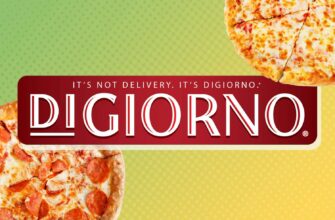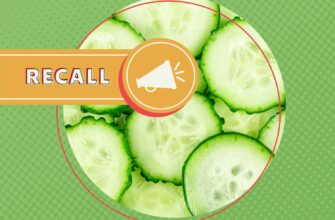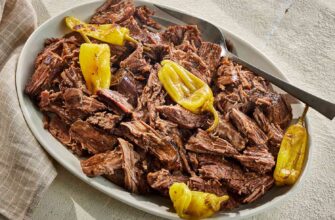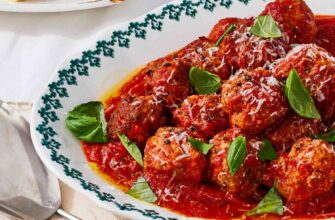Close
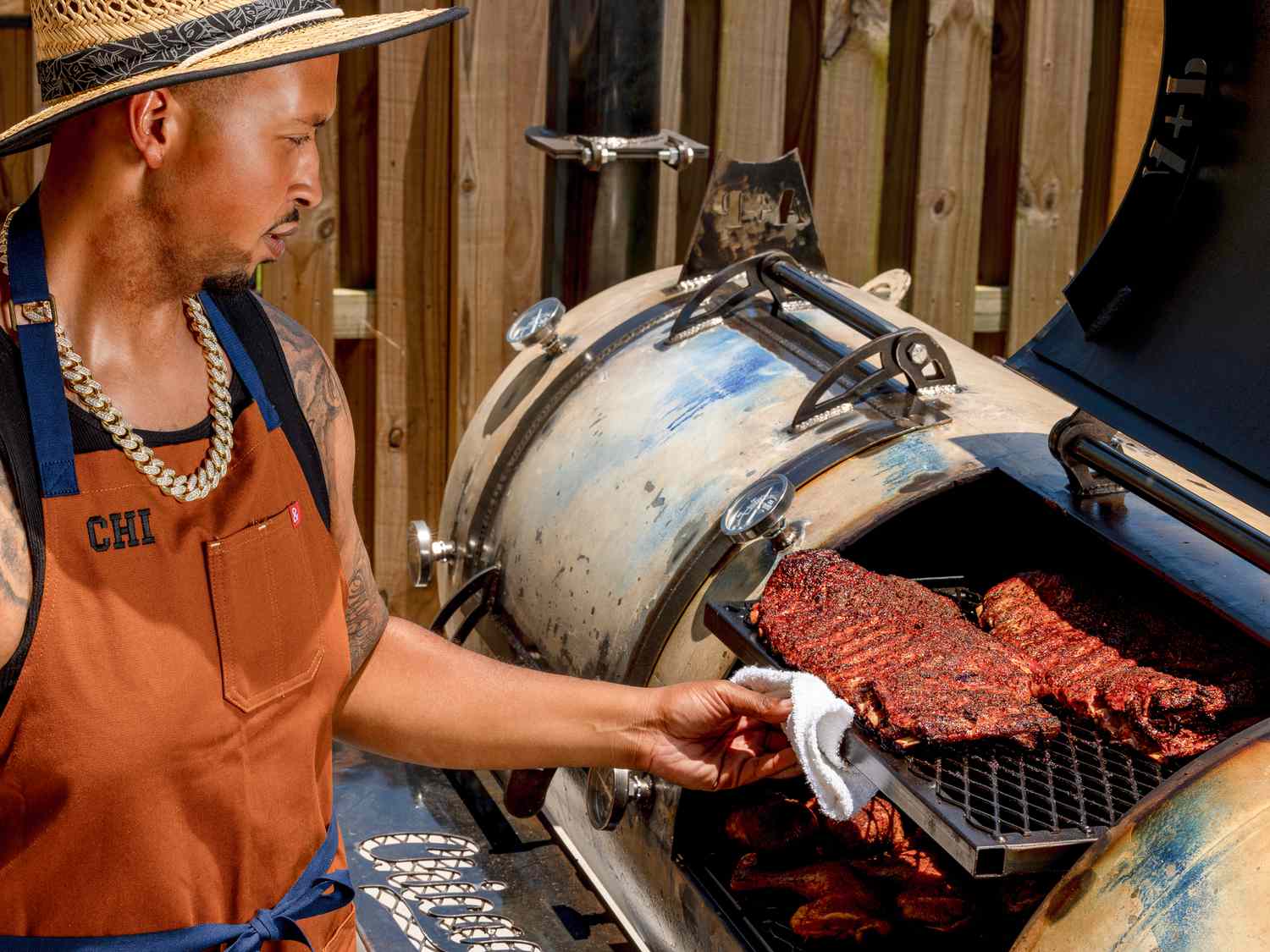
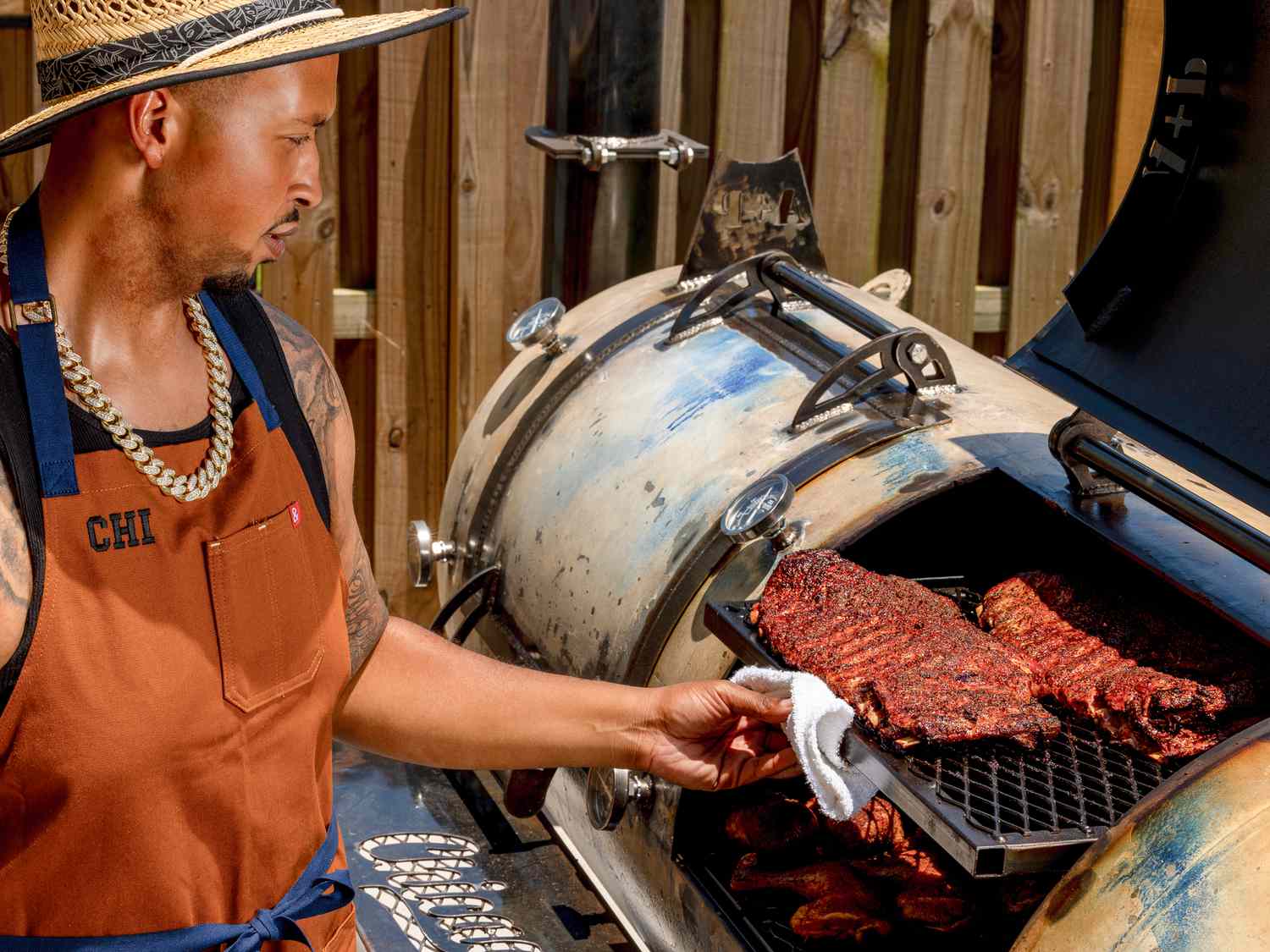
Credit:
Allrecipes/Danny Garrett
If you’ve ever discreetly decanted your bottled barbecue sauce into a bowl or pan before cookout guests arrive in an attempt to pass it off as homemade (just me?!), you can stop trying to hide your little secret. Even professional pitmasters agree with the Barefoot Contessa, that if you choose wisely, store-bought is more than fine.
"I love the nostalgia of store-bought barbecue sauce. It reminds me of my dad making some ribs on a warm summer day," says chef Todd Ginsberg.
While these experts swear by their homemade signature sauces on their restaurant menus or when a blue ribbon is on the line, they’ll gladly pop open a bottle of store-bought barbecue sauce when they’re feeding themselves or entertaining at home. But when they outsource, these pros won’t settle for anything less than the best—and don’t think you should, either.
Our Panel of Pitmasters
- Paul Babberl, pitmaster at Whatcha Smokin BBQ + Brew in Luther, Iowa
- Erica Blaire Roby, a Houston, Texas-based award-winning pitmaster and a champion of Food Network’s “Master of Cue” cooking competition show
- Todd Ginsberg, chef partner for Rye Restaurants, including Wood’s Chapel BBQ in Atlanta, Georgia
- Phil “the Grill” Johnson, a Phoenix, Arizona-based pitmaster and spokesperson for the National BBQ Festival
- Kell Phelps, the Douglas, Georgia-based managing partner of the National Barbecue & Grilling Association and the publisher of Barbecue News
- Chef Dakari “Chicageaux” Akorede, a pitmaster and co-owner of Chicageaux BBQ, based in Atlanta, Georgia
Qualities of the Best Barbecue Sauce
The most foolproof way to determine if a sauce is up to snuff is simply to give it a taste.
"Because I like a lot of different sauces, it’s hard for me to steer clear of any sauce until I’ve tried it," says Kell Phelps.
As you analyze a new-to-you sauce, the pitmasters suggest seeking out recipes that check the following boxes:
The Flavor Is Balanced and Rich
Preferences vary about whether a sauce should be tomato- or mustard-based, and whether sweetened with brown sugar, maple syrup, molasses, or tamarind. (This last is “the new darling of BBQ sauces, and really helps the meat shine,” according to Erica Blaire Roby.) But every grilling expert can agree with Phil “the Grill” Johnson that “a good sauce should have a harmonious combination of sweetness, tanginess, and heat. I steer clear of sauces that are overly sweet or artificial-tasting, as they often mask the natural flavors of the meat.” The finished product should be complex and robust, with a hint of tanginess and mild sweetness—and no chemical aftertaste.
Phil Johnson
"A good sauce should have a harmonious combination of sweetness, tanginess, and heat."
— Phil Johnson
The Ingredient List Isn't Too Lengthy
Flip the bottle around and peek at the ingredient list. If it takes longer to read than your horoscope, it’s probably wise to skip, Johnson notes. “I prefer sauces that don’t contain too many preservatives or additives. Fewer ingredients often mean better quality,” he says. And Roby urges you to pay attention to the first three ingredients used: “If high-fructose corn syrup is a prominent ingredient, the sauce is prone to burning in a high-heat grilling situation.” Plus, that corn syrup can push the sweetness over the top.
It's Thick Enough to Cling
Paul Babberl says that the best sauces have a consistency that’s on the thicker side. If you’re using it during grilling or roasting—or simply tossing it with cooked proteins or vegetables—its texture should stick instead of sliding or dripping right off.
It's Versatile
The best barbecue sauces play nicely with a wide variety of proteins, from turkey to tofu, and are able to shine as a team player in everything from baked beans to dips to salad dressings.
The Best Store-Bought Barbecue Sauce, According to Pitmasters
The competition for this barbecue trophy was tight, but with votes from Phelps, Babberl, and Allrecipes Allstar Dakari Akorede, the pitmaster-approved best store-bought barbecue sauce is Sweet Baby Ray’s Original.
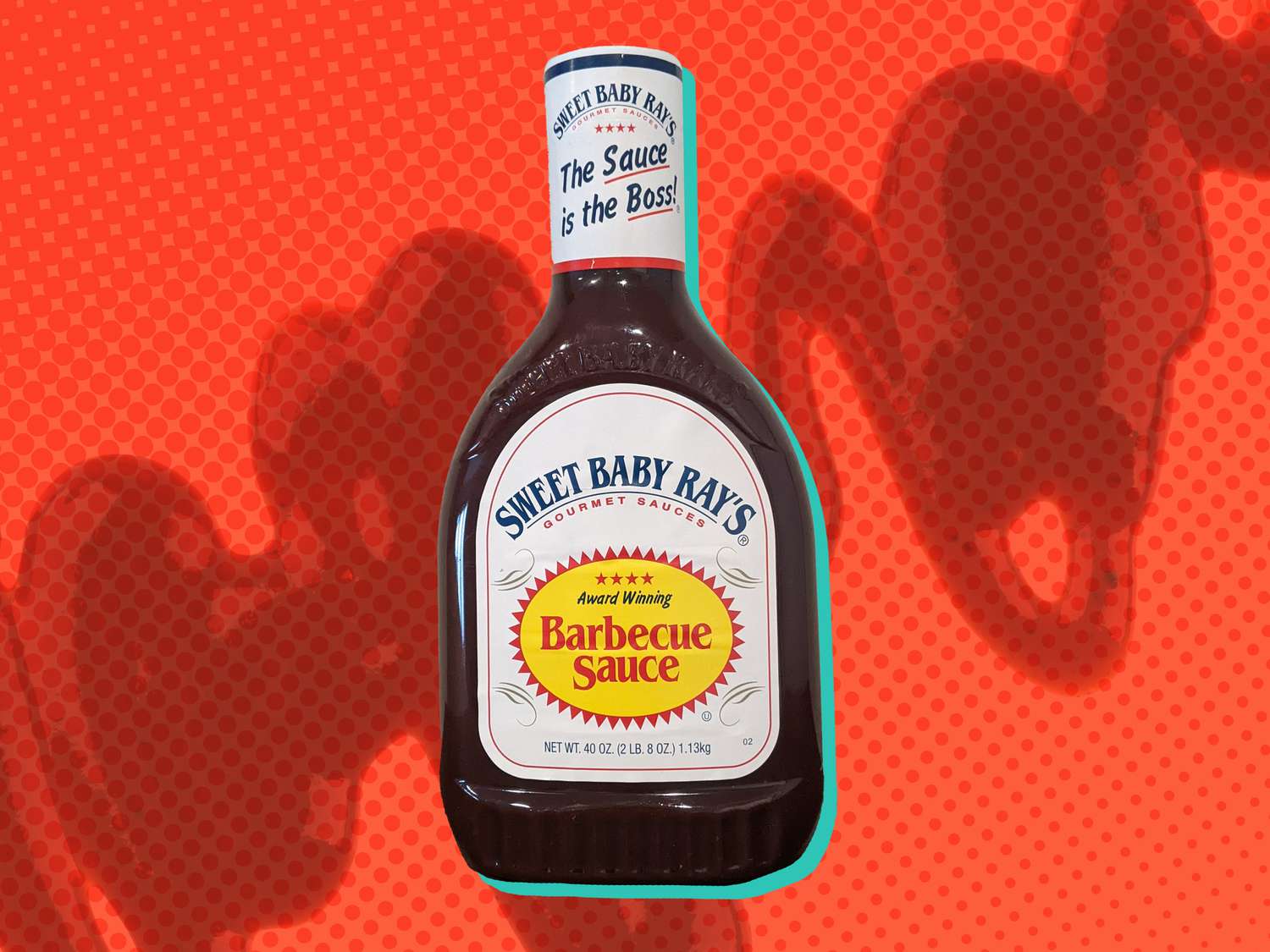
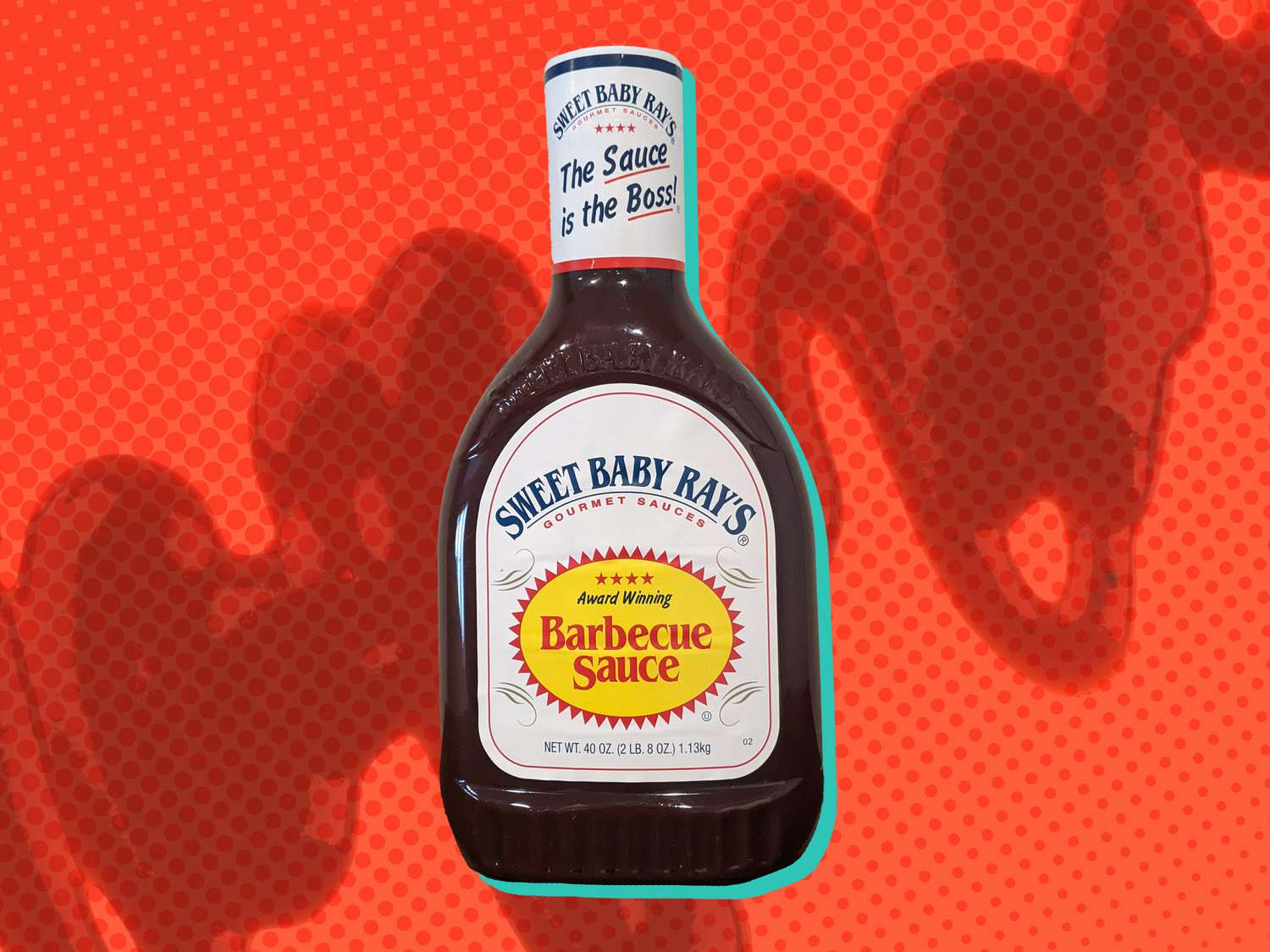
Brendan McGinley / Allrecipes
“It gives me the homemade feel without the hassle. The balance between smokiness, sweetness, and tanginess makes it feel like it was slow-simmered in someone’s backyard smoker,” Babberl explains, noting that “the standout quality of this sauce is its versatility. It pairs equally well with ribs, brisket, or pulled pork and works as a glaze, marinade, or dipping sauce.”
Phelps personally prefers to enjoy it as a condiment, and says that for him, "sauce is always on the side." Still, this sauce is so stellar and is "versatile and sweet—it truly goes with just about anything." That sweetness is courtesy of pineapple juice, molasses, and a hint of tamarind, by the way, which is balanced out by umami tomato paste, acidic vinegar, and salt.
Phelps is particularly fond of pairing this budget-friendly buy (it’s often available for about $2.50 for 18 ounces) with Boston butt and pulled pork. As for Babberl, he loves to feature it in baked beans and slather Sweet Baby Ray’s over his smoked ribs during their final 15 minutes in the smoker. “The sauce caramelizes beautifully, creating a sticky, flavorful glaze that enhances the meat while adding depth.”
Akorede adds, “When it comes to store-bought BBQ sauces, Sweet Baby Ray’s is hands down a classic that still holds its own. It’s sweet, sticky, and dependable—perfect for quick meals or when you’re cooking for a crowd.” He also likes to kick it up a notch: “For my palate, I like to cut through the sweetness with a dash of heat to create a more balanced flavor. My go-to move? Stir in a spoonful of chipotle in adobo or a splash of hot vinegar pepper sauce. It gives the sauce a smoky backbone and just the right kick to elevate without overpowering.”
Honorable Mentions
A handful of other sauces are certainly worth the refrigerator door real estate, the pitmasters say. These include:
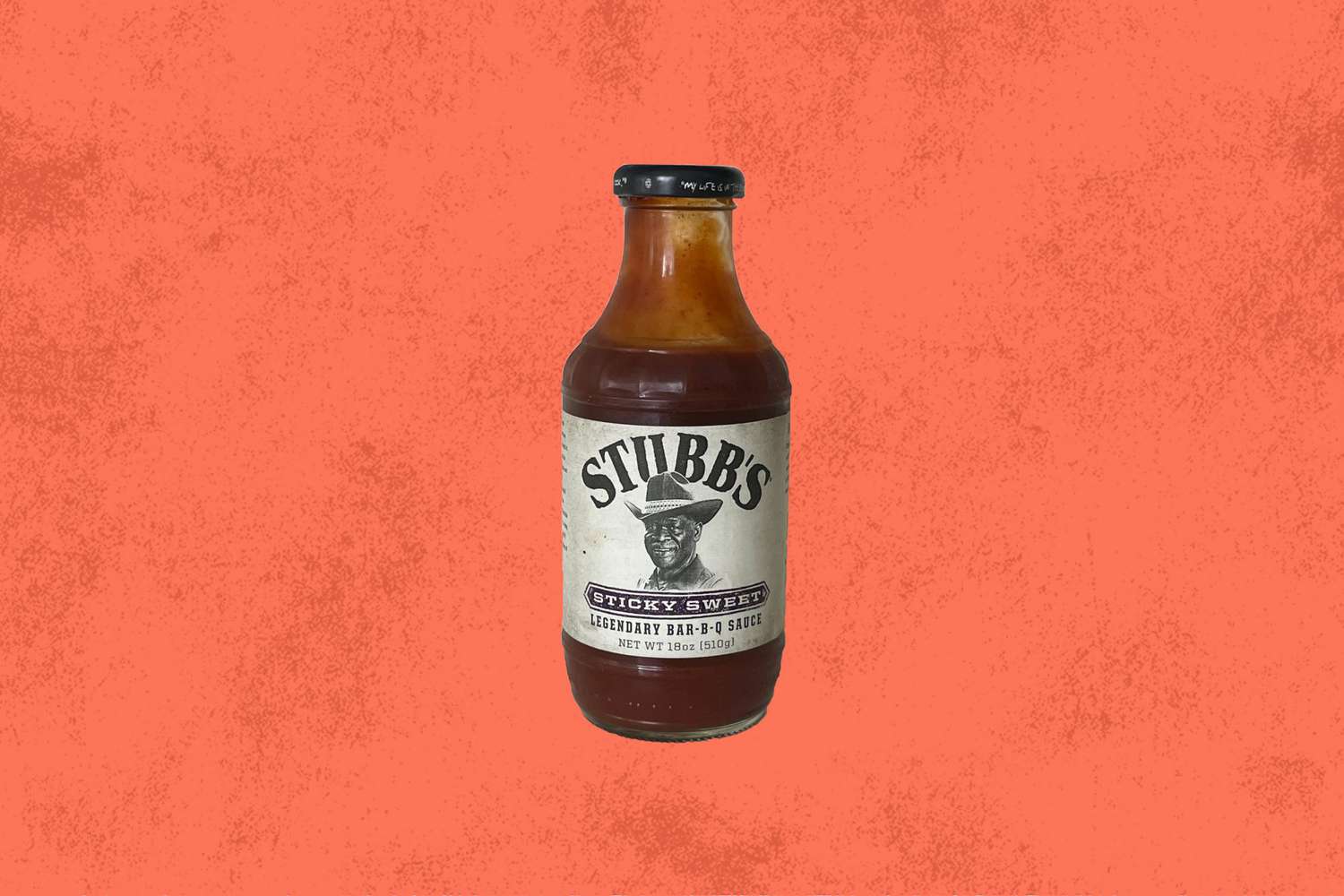
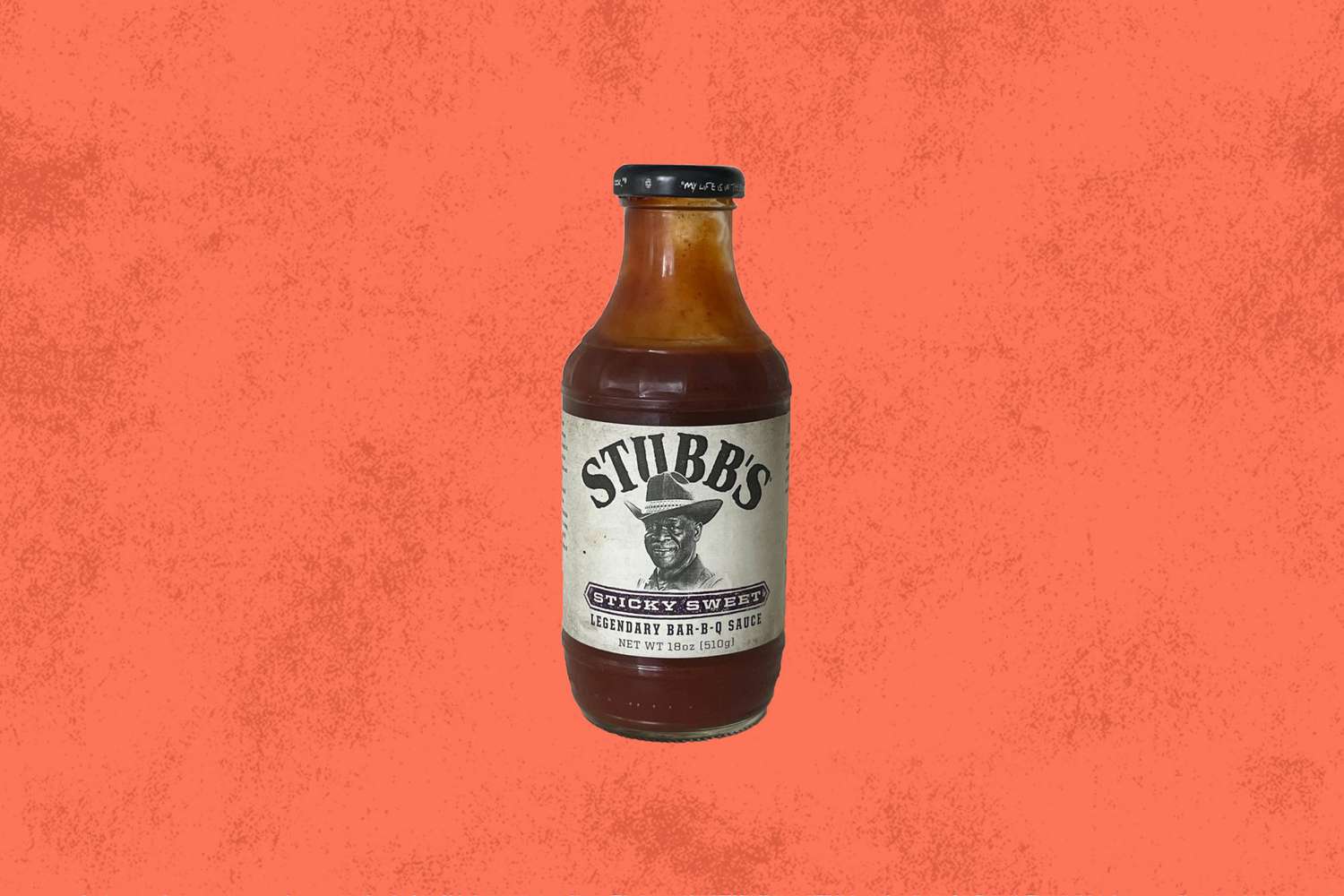
Sabrina Tan/Dotdash Merdith
- Stubb’s Original BBQ Sauce: Clocking in at a reasonable $4 for 18 ounces, this molasses- and brown sugar-sweetened sauce stands out for being free of high-fructose corn syrup. Sweet Baby Ray’s has some, which is part of the reason why Stubb’s earns brownie points from Ginsberg. “It’s a reliable and classic sauce that’s bold in flavor with a great balance of tanginess, sweetness, and smoke,” he says. “A great rack of ribs only gets better with a slather of Stubb’s.”
- Blues Hog Original BBQ Sauce: Available for about $9 for a 25-ounce handy squeeze bottle, Blues Hog is a standout for Johnson “because it strikes the perfect balance of sweet heat and complexity,” making the “bold and nuanced” sauce ideal to feature with ribs, pulled pork, baked beans, and more, he says. With brown sugar, ketchup, apple cider vinegar, and Worcestershire leading the charge, this sauce gains extra depth from salty-umami anchovies and sweet-seeming tamarind and vanilla extracts. “The consistency is perfect, too—not too thick, yet not too runny, making it great for glazing or dipping,” Johnson adds. The company is owned by a pitmaster who has won more than 75 grand championships on the barbecue circuit.
- Bachan’s Original BBQ Sauce: For a less traditional option, you can’t go wrong with the self-proclaimed “original Japanese BBQ sauce,” Roby believes. “There just isn’t anything like it. It focuses on the savory aspects of BBQ,” she says. Promoted as “umami-full and teriyaki-ish,” this tomato-based sauce gets its punch from soy sauce, ginger, rice vinegar, and rice wine. Sold for about $9 per 17-ounce squeeze bottle, Bachan’s “doesn’t overpower meat or veggies, but still tastes incredibly rich,” Roby tells us. “I like to use it as a baste and glaze right before I slice brisket to serve it.”
Explore more:
Was this page helpful?
Thanks for your feedback!
Tell us why!
Other
Submit

